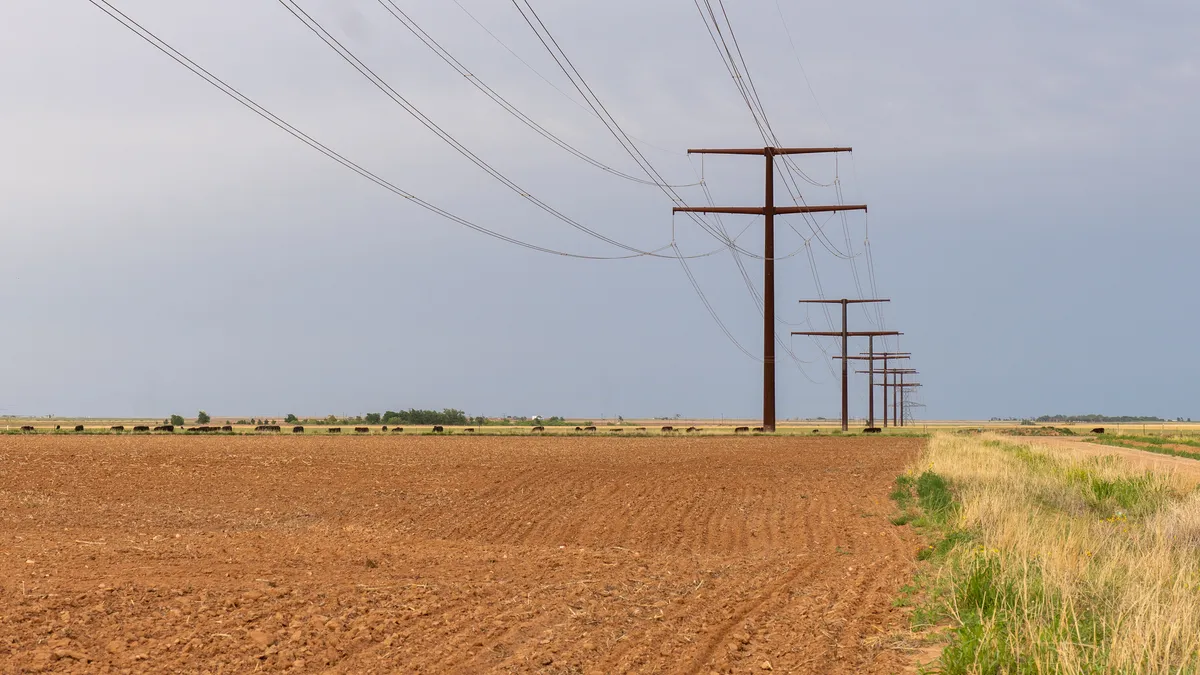The Federal Energy Regulatory Commission on Wednesday approved proposals by the Midcontinent Independent System Operator and the Southwest Power Pool to change their tariffs and joint operating agreement needed to advance $1.8 billion in transmission projects that could enable about 29 GW of new generation along the grid operators’ northern seam.
The approved filings grew out of MISO and SPP’s Joint Targeted Interconnection Queue process, which identified five 345-kV transmission projects in an area with rich renewable energy resources. MISO expects the projects will begin coming online in 2031.
The Department of Energy in October 2023 awarded the JTIQ projects $464 million, with incumbent utilities paying $1.3 billion.
The JTIQ framework provides a range of benefits, including a streamlined generation interconnection queue process, optimized network upgrades and greater cost and timing certainty for the transmission projects, according to MISO’s 2024 transmission expansion plan, which includes the projects and is set to be voted on by the grid operator’s board next month.
MISO and SPP’s proposals were supported by the Organization of MISO States, which represents state utility commissions, the WIRES Group, a trade group for transmission owners, International Transmission Co., Americans for a Clean Energy Grid and public interest groups, including the Sierra Club and Environmental Law and Policy Center.
In its Nov. 13 decision, FERC approved a provision that would allocate all the initial JTIQ transmission costs to interconnecting customers. FERC rejected arguments from clean energy trade groups that the costs should be more broadly shared, saying that interconnecting customers were the projects’ main beneficiaries and therefore should pay all those costs.
“The primary purpose of these projects is to provide interconnection customers — generation developers, primarily wind and solar — with more interconnection opportunities, FERC Commissioner Mark Christie said in a concurrence. “Accordingly, it is appropriate that the primary funding for these projects is from the generation developers themselves as they are the primary beneficiaries.”
FERC also found that it was appropriate that incumbent transmission owners build the projects and provide the projects’ upfront funding on which they will earn a rate of return over 20 years.
“We note that the alternative — that interconnection customers provide upfront funding (i.e., generator upfront funding) — is not workable, because interconnection customers may not be identified when construction of a JTIQ upgrade begins,” FERC said.
FERC rejected calls to require cost caps on the projects. “There are multiple existing processes to ensure the justness and reasonableness of the JTIQ upgrade costs that are recovered in Commission-jurisdictional rates,” FERC said.
FERC Commissioner Judy Chang didn’t participate in the decision, signaling that the former Brattle Group consultant may have had a conflict of interest.














